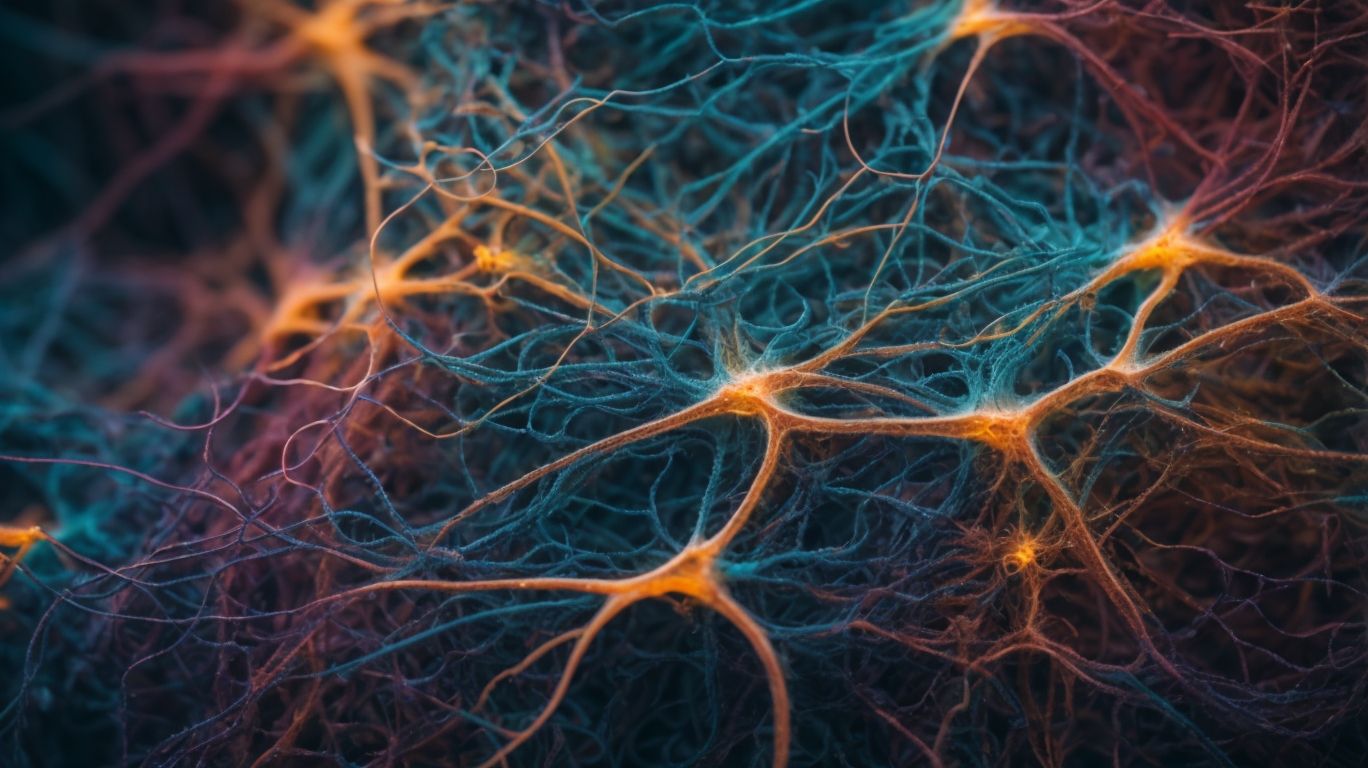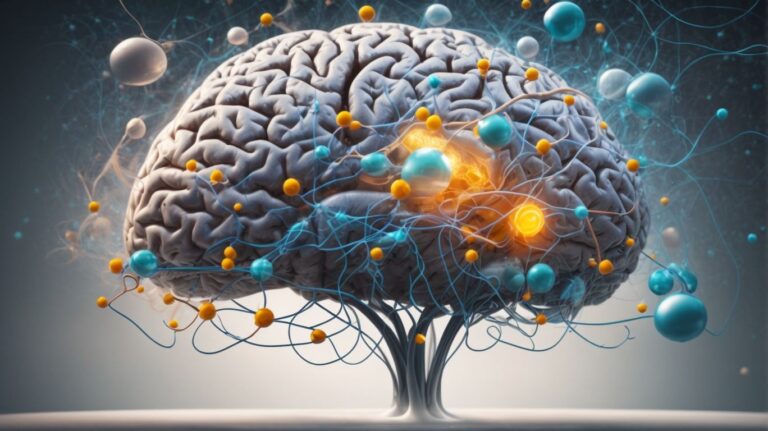Neuropsychology is a fascinating field that delves into the intricate relationships between the brain and behavior. In this article, we will explore the key areas of study in neuropsychology, including cognitive, behavioral, and clinical neuropsychology.
We will also discuss the techniques used in neuropsychological assessment, such as neuroimaging and neuropsychological tests, as well as the common disorders studied in this field. We will examine the brain-behavior relationship, including the localization of brain functions and the plasticity of the brain.
Furthermore, we will explore the current challenges and future directions in neuropsychology. So, let’s dive into the fascinating world of neuropsychology and unravel the mysteries of the brain.
Contents
- 1 Key Takeaways:
- 2 What Is Neuropsychology?
- 3 What Are the Key Areas of Study in Neuropsychology?
- 4 What Are the Techniques Used in Neuropsychological Assessment?
- 5 What Are the Common Disorders Studied in Neuropsychology?
- 6 How Does the Brain-Behavior Relationship Work?
- 7 What Are the Current Challenges and Future Directions in Neuropsychology?
- 8 Frequently Asked Questions
- 8.1 What is neuropsychology and why is it important?
- 8.2 How is neuropsychology different from other branches of psychology?
- 8.3 What are some common methods used in neuropsychology research?
- 8.4 Can neuropsychological disorders be treated?
- 8.5 Are all neuropsychological disorders caused by brain damage?
- 8.6 What are some potential career paths in neuropsychology?
Key Takeaways:
What Is Neuropsychology?
Neuropsychology is a specialized field that explores the intricate relationship between brain function, cognitive processes, and behavior, focusing on understanding the biological underpinnings of cognitive functions.
This discipline integrates cognitive neuroscience and cognitive psychology to delve into the complexities of the brain and its impact on behavior.
Through the study of brain lesions, genetics, and neuroimaging techniques, neuropsychologists unravel how brain dysfunction affects various aspects of human cognition and behavior.
They investigate the neural mechanisms underlying attention, memory, language, perception, and executive functions.
By understanding these connections, researchers and clinicians can develop interventions and treatments to assist individuals with neurological disorders or brain injuries.
What Are the Key Areas of Study in Neuropsychology?
The key areas of study in neuropsychology encompass cognitive neuropsychology, behavioral neuropsychology, and clinical neuropsychology, each diving into distinct aspects of brain-behavior relationships and cognitive functions.
Cognitive neuropsychology focuses on understanding how cognitive processes are organized in the brain by studying individuals with cognitive deficits caused by brain injury or neurological illness.
This branch aims to identify patterns of cognitive impairment to enhance our understanding of normal cognitive functions.
On the other hand, behavioral neuropsychology examines the relationship between brain systems and behavior, assessing how damage in specific brain areas impacts an individual’s behavior and emotional functioning.
It often involves the use of neuroimaging techniques to investigate brain-behavior associations.
Clinical neuropsychology plays a crucial role in assessing and treating individuals with neurological disorders, utilizing knowledge from both cognitive and behavioral neuropsychology to provide comprehensive evaluations and interventions.
This field emphasizes the integration of psychological and neurological principles.
The collaboration between neuropsychologists, cognitive neuroscientists, and clinical psychologists in these domains enables a multidisciplinary approach to understanding the complexities of the brain and behavior, facilitating advancements in research and clinical practice.
Cognitive Neuropsychology
Cognitive neuropsychology explores the effects of neurological damage on cognitive processes, diving into the specific impairments and their implications for understanding brain function and cognitive psychology.
The study involves the examination of individuals with brain injuries or disorders to understand how these conditions affect their cognitive abilities. By analyzing the patterns of cognitive deficits in these cases, cognitive neuropsychologists can gain valuable insights into the organization of cognitive functions within the brain.
For instance, the famous case of Phineas Gage exemplifies the profound impact of frontal lobe damage on personality and decision-making. Similarly, the well-documented case of Clive Wearing demonstrates the intricate interplay between memory processing and brain function. These real-world examples provide concrete evidence of how cognitive neuropsychology contributes to our understanding of the brain-mind relationship and its implications for cognitive psychology.
Behavioral Neuropsychology
Behavioral neuropsychology focuses on observing and analyzing the behavioral manifestations of brain function, leveraging insights from cognitive neuroscience to understand the intricate interplay between the brain and behavior.
This field emphasizes the integration of cognitive neuroscience to unravel the complex relationship between brain activity and behavior.
By utilizing methodologies such as behavioral observation, researchers can gain valuable insights into how cognitive processes influence behavior, paving the way for a deeper understanding of neurological disorders and their behavioral implications.
Clinical Neuropsychology
Clinical neuropsychology encompasses the application of brain imaging techniques and functional magnetic resonance to diagnose and treat cognitive disorders, emphasizing the integration of clinical psychology in addressing cognitive impairments.
Brain imaging techniques have revolutionized our understanding of the brain’s structure and function. Technologies like CT, PET, fMRI, ERP, MEG, CBF, and BOLD allow clinicians to diagnose and treat cognitive deficits with precision. By visualizing and mapping brain activity, these advanced imaging techniques provide valuable insights into the neurological basis of cognitive impairments.
What Are the Techniques Used in Neuropsychological Assessment?
Neuropsychological assessment incorporates advanced techniques such as neuroimaging, neuropsychological tests, and behavioral observation to analyze brain function and cognitive processes, leveraging insights from cognitive neuroscience.
Neuroimaging techniques, such as CT, PET, fMRI, ERP, MEG, CBF, and BOLD, are essential in understanding neurological disorders. They provide detailed information on the brain’s structure, function, and connectivity, allowing clinicians to evaluate the impact of injury, disease, or aging on cognitive function.
Neuropsychological tests offer a standardized way to assess cognitive abilities, including memory, attention, and problem-solving skills. This data is valuable for diagnosing and planning interventions for neurological conditions.
Behavioral observation complements these techniques by providing real-time insights into an individual’s daily functioning and behavior. It offers a holistic view of their cognitive and emotional well-being.
Neuroimaging
Neuroimaging techniques such as CT and PET enable the visualization of brain activity and blood flow, providing valuable insights into the physiological underpinnings of cognitive functions and brain behavior relationships.
These techniques have revolutionized the study of the brain by allowing researchers to observe the real-time functioning of the brain non-invasively. They play a critical role in understanding various cognitive processes, including perception, attention, memory, and language production.
Through cerebral blood flow measurements, neuroscientists can explore the neural correlates of mental activities and map brain structures involved in different functions. Neuroimaging techniques are pivotal in diagnosing and understanding brain disorders, such as Alzheimer’s disease, epilepsy, and schizophrenia. By revealing abnormal patterns of brain activity and metabolism, these methods aid in early detection, differentiation, and monitoring of neurological conditions.
Neuropsychological Tests
Neuropsychological tests are instrumental in assessing cognitive processes and identifying neurological impairments, playing a pivotal role in the integration of clinical psychology within neuropsychological assessments.
These tests are designed to evaluate a wide range of cognitive abilities such as memory, attention, language, and executive functions, which are essential for understanding the underlying neurological functioning of an individual.
They are crucial in diagnosing conditions such as dementia, traumatic brain injuries, stroke, and neurodevelopmental disorders. Advancements in standardized tests have allowed for a more comprehensive assessment, providing valuable insights into an individual’s cognitive strengths and weaknesses.
Challenges exist in ensuring cultural and linguistic fairness, standardizing norms across diverse populations, and adapting tests for individuals with unique neurological profiles.
Behavioral Observation
Behavioral observation serves as a critical tool in evaluating brain behavior relationships and cognitive functions, providing valuable insights into the manifestation of cognitive processes in real-world settings.
Qualitative methodologies in behavioral observation allow researchers to gather rich, in-depth data on behaviors and interactions, offering a deep understanding of how cognitive functions are manifested in various contexts.
On the other hand, quantitative approaches provide statistical and measurable data, enabling the systematic analysis of behavioral patterns and their association with cognitive processes.
What Are the Common Disorders Studied in Neuropsychology?
Neuropsychology focuses on studying common disorders such as traumatic brain injury, Alzheimer’s Disease, stroke, and epilepsy, diving into their neurological underpinnings and cognitive implications.
These prevalent disorders are of critical importance in understanding brain-behavior relationships and cognitive implications.
Traumatic brain injury, resulting from external force, can impact various cognitive functions, such as memory, attention, and executive functions, depending on the severity and location of the injury.
Similarly, Alzheimer’s Disease, characterized by progressive cognitive decline, is associated with neurodegenerative changes, particularly in areas related to memory and higher cognitive functions.
Stroke, caused by disruptions in blood supply to the brain, can lead to various cognitive impairments, including language difficulties and motor deficits.
Epilepsy, characterized by recurrent seizures, stems from abnormal electrical activity in the brain, impacting cognitive processes and behavior.
Traumatic Brain Injury
Traumatic brain injury is a primary focus of neuropsychological research, aiming to comprehend its impact on brain function and cognitive processes through collaboration with cognitive neuroscientists.
This collaborative effort manifests in the study of specific case studies, where the complex interplay between cognitive functions and neural mechanisms is thoroughly examined.
The field has seen advancements in rehabilitation strategies, employing innovative techniques tailored to individual needs and leveraging neuroplasticity.
These efforts are crucial in improving the quality of life and functional outcomes for individuals with traumatic brain injury.
Alzheimer’s Disease
Alzheimer’s Disease is a significant area of study in neuropsychology, utilizing brain imaging techniques and insights from clinical psychology to understand its cognitive manifestations and progression.
This neurodegenerative disorder affects memory, thinking, and behavior, making it crucial for researchers to delve into its intricate mechanisms. The use of brain imaging, including MRI and PET scans, allows scientists to visualize the changes in the brain’s structure and function over time.
Insights from clinical psychology provide a holistic understanding of the emotional and psychological impact on individuals and their families. Understanding the challenges in early diagnosis and intervention is vital.
Advances in biomarker research, such as amyloid-beta and tau proteins, offer potential for detecting the disease in its early stages. Early intervention strategies, including cognitive training and lifestyle modifications, show promise in delaying cognitive decline and improving quality of life for those affected.
Stroke
Stroke is a critical focus of neuropsychological research, aiming to comprehend its impact on brain function and cognitive functions, examining the rehabilitation and long-term implications for affected individuals.
Such research seeks to understand the diverse ways in which stroke can affect an individual’s memory, attention, language, and executive function.
Through in-depth assessments, researchers aim to identify the specific cognitive challenges that arise as a result of stroke, laying the groundwork for targeted cognitive rehabilitation interventions. These interventions are designed to help individuals regain lost cognitive abilities and skills, ultimately enhancing their quality of life post-stroke.
This focus on cognitive rehabilitation represents a vital aspect of stroke recovery, offering hope and support to those navigating the complexities of post-stroke challenges.
Epilepsy
Epilepsy constitutes an essential area of study in neuropsychology, exploring its impact on brain behavior and cognitive neuroscience to develop comprehensive management and treatment approaches.
Researchers delve into the intricate relationship between epileptic seizures and cognitive function, seeking to understand the specific mechanisms that underpin the cognitive impairments often associated with epilepsy.
The development of cognitive-behavioral interventions has opened new avenues for managing the cognitive aspects of epilepsy, offering promising strategies to enhance the quality of life for individuals living with the condition.
Advancements in seizure prediction technology have the potential to revolutionize epilepsy management, give the power toing patients and healthcare professionals to anticipate and mitigate the impact of seizures.
How Does the Brain-Behavior Relationship Work?
The brain-behavior relationship involves the localization of brain functions and the plasticity of the brain, elucidating how cognitive processes and behaviors are intricately linked to specific brain regions and the brain’s adaptive capabilities.
The intricate connection between brain functions and behavior lies in the neuroplasticity of the brain. This refers to its ability to reorganize and adapt in response to experiences, learning, and environmental changes. This extends beyond the traditional concept of fixed brain functions, suggesting that the brain can rewire itself, leading to neural reorganization.
As a result, specific cognitive processes and behaviors can be tied to the dynamic changes in particular brain areas. This highlights the remarkable flexibility and adaptability of this complex organ.
Localization of Brain Functions
The localization of brain functions involves mapping cognitive processes to specific brain regions, often utilizing techniques such as functional magnetic resonance to understand the regional blood flow and neural activity.
This process is crucial in understanding how different regions of the brain contribute to various cognitive functions, such as perception, memory, language, and decision-making.
Landmark studies, like the ones conducted by Broca and Wernicke, have been instrumental in identifying specific brain areas responsible for language processing.
Advancements in neuroimaging technologies, including the development of high-resolution imaging and multi-modal approaches, have significantly improved the accuracy and spatial resolution of mapping brain functions.
Plasticity of the Brain
The plasticity of the brain elucidates its adaptive capabilities in response to neurological damage, outlining the remarkable capacity for functional reorganization and rehabilitation of cognitive functions.
Brain plasticity refers to the brain’s ability to reorganize itself by forming new neural connections throughout life. This phenomenon is crucial for recovery after brain injuries or in response to learning new tasks.
For instance, studies have shown that even in cases of stroke, the brain can rewire itself to restore certain lost functions. This adaptive quality of the brain has paved the way for innovative rehabilitative interventions, such as neurofeedback, cognitive training programs, and transcranial magnetic stimulation, which aim to harness the brain’s plasticity for enhancing cognitive functions.
What Are the Current Challenges and Future Directions in Neuropsychology?
Neuropsychology faces current challenges in understanding the biological underpinnings of cognitive functions and integrating advancements in clinical psychology, while its future directions are shaped by emerging technologies and interdisciplinary collaborations, as envisioned by the American Psychological Association.
These challenges are rooted in the complexity of the human brain and its intricate mechanisms that underpin cognition. New advancements in imaging techniques, such as functional magnetic resonance imaging (fMRI) and positron emission tomography (PET), are providing unprecedented insights into brain functions.
The integration of these findings with clinical psychology practices remains a substantial hurdle. The future of neuropsychology looks promising with the rapid development of cutting-edge technologies, including artificial intelligence and machine learning. These innovations offer the potential to revolutionize data analysis and interpretation, leading to more comprehensive understandings of the brain and behavior.
Interdisciplinary collaborations are at the forefront of driving progress in neuropsychology. Collaborations between neuroscientists, clinical psychologists, and computational biologists are essential in bridging the gap between basic research and clinical applications, paving the way for novel intervention strategies and diagnostic tools.
As the field progresses, diverse research perspectives contribute to a broader and more inclusive understanding of the intricate relationship between the brain and behavior. Ethical considerations also play a crucial role in guiding research practices, ensuring that advancements in neuropsychology are aligned with ethical principles and the well-being of individuals.
Frequently Asked Questions
What is neuropsychology and why is it important?
Neuropsychology is the study of the relationship between brain function and behavior. It is important because it helps us understand how the brain works and how it can impact behavior in different individuals.
How is neuropsychology different from other branches of psychology?
Neuropsychology focuses specifically on the physical structures and functions of the brain, while other branches of psychology may focus on emotional, cognitive, or social aspects of behavior.
What are some common methods used in neuropsychology research?
Some common methods used in neuropsychology research include brain imaging techniques such as MRI, PET, and fMRI, as well as neuropsychological tests and assessments.
Can neuropsychological disorders be treated?
Yes, many neuropsychological disorders can be treated through a combination of medication, therapy, and lifestyle changes. Treatment plans are tailored to the individual’s specific needs and symptoms.
Are all neuropsychological disorders caused by brain damage?
No, not all neuropsychological disorders are caused by brain damage. Some may be caused by genetic factors, developmental issues, or other environmental factors.
What are some potential career paths in neuropsychology?
Some potential career paths in neuropsychology include working as a neuropsychologist in a clinical setting, conducting research in a university or laboratory, or teaching at a university.



